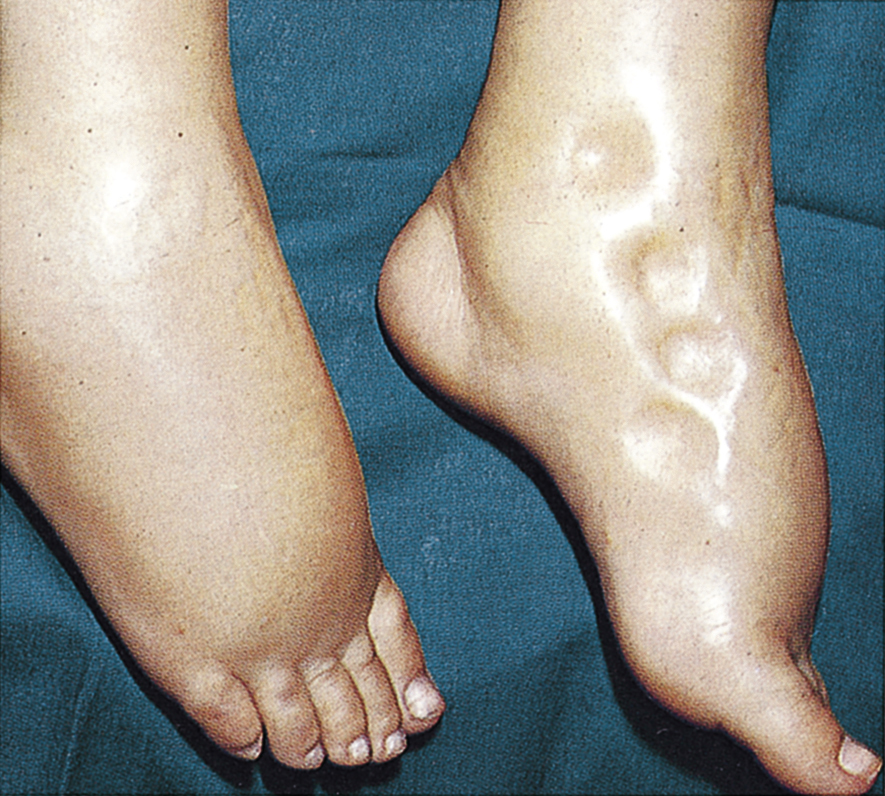edema /idē″mə/ [Gk, oidema, swelling] , the abnormal accumulation of fluid in interstitial spaces of tissues, such as in the pericardial sac, intrapleural space, peritoneal cavity, or joint capsules. Edema may be caused by increased capillary fluid pressure; venous obstruction such as occurs in varicosities; thrombophlebitis; pressure from casts, tight bandages, or garters; congestive heart failure; overloading with parenteral fluids; renal failure; hepatic cirrhosis; hyperaldosteronism such as in Cushing’s syndrome; corticosteroid therapy; and inflammatory reactions. Edema may also result from loss of serum protein in burns, draining wounds, fistulas, hemorrhage, nephrotic syndrome, or chronic diarrhea; in malnutrition, especially kwashiorkor; in allergic reactions; and in blockage of lymphatic vessels caused by malignant diseases, filariasis, or other disorders. See also anasarca, lymphedema. −edematose, edematous, adj. ▪ OBSERVATIONS: In the evaluation of tissue turgor, edema may be evaluated by position change, specific location, and response to pressure, as in pitting edema, when pressing the fingers into the edematous area causes a temporary indentation. An ultrasound evaluation of the affected extremity is indicated to rule out thrombosis. ▪ INTERVENTIONS: Treatment of edema focuses on correcting the underlying cause. Potassium-sparing diuretics may be administered to promote excretion of sodium and water. Edematous parts of the body should be protected from prolonged pressure, injury, and temperature extremes. When a limb is edematous as a result of venous stasis, elevating the extremity and applying an elastic stocking or sleeve facilitate venous return. ▪ PATIENT CARE CONSIDERATIONS: The patient may experience body image problems related to changes in size when edema is visible.

